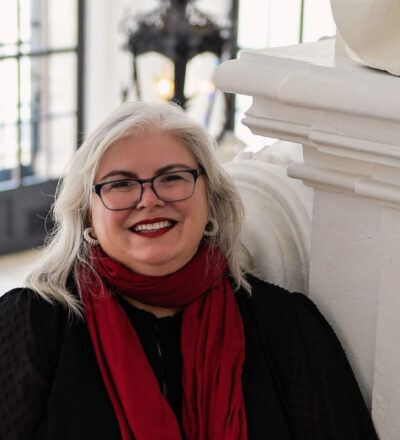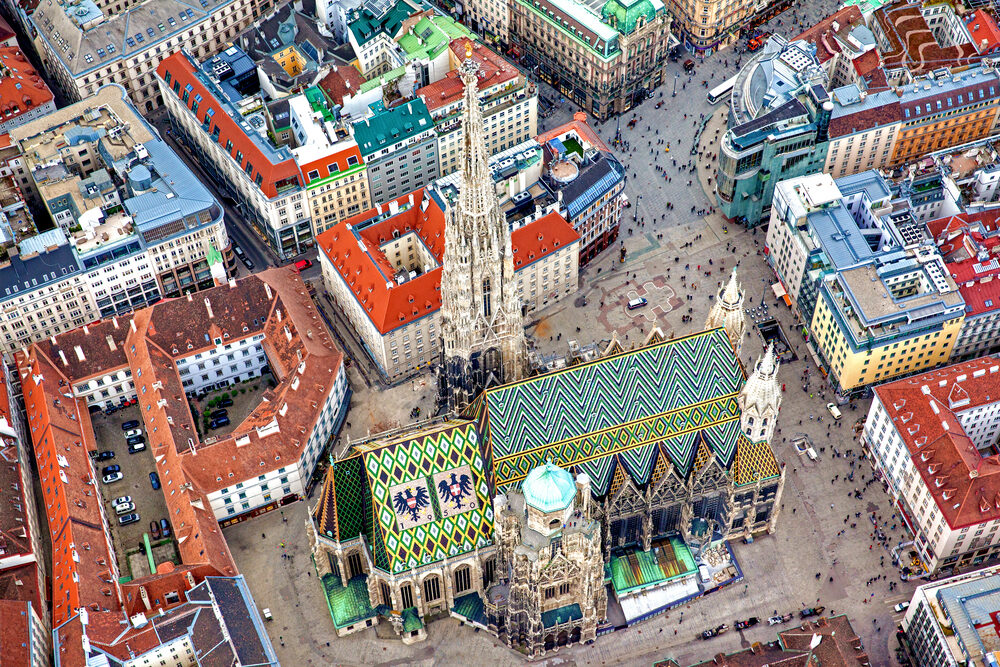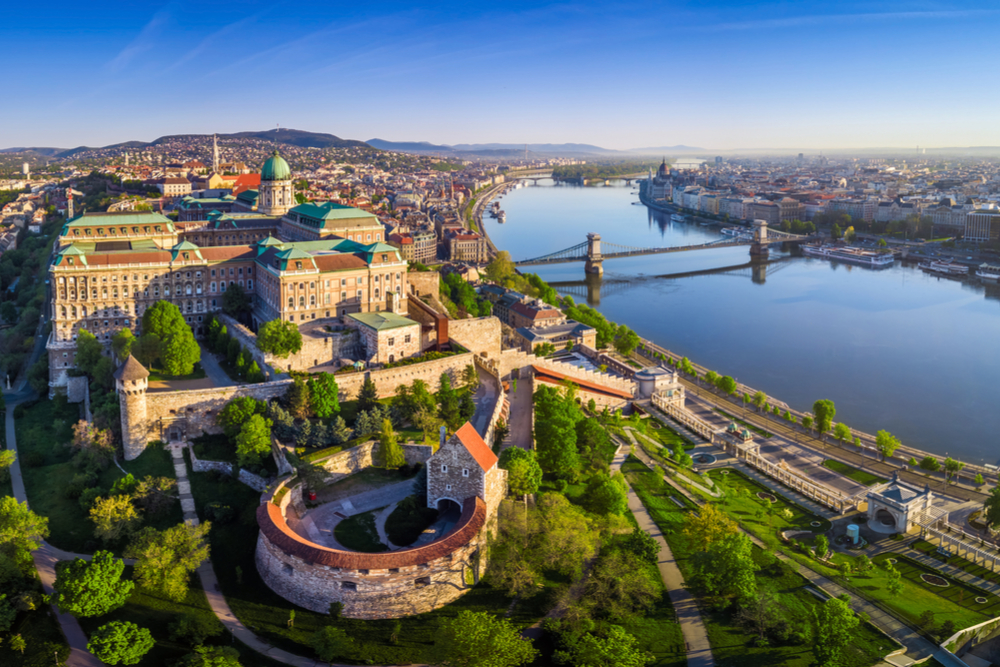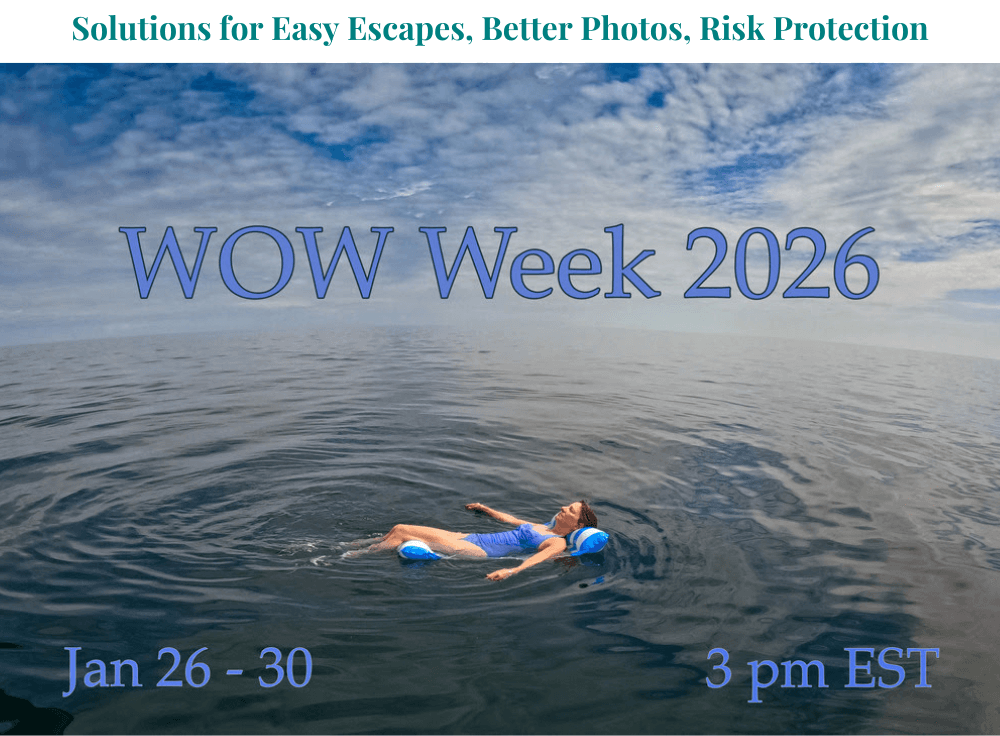Czech Republic: Insider’s Guide to Prague and Beyond
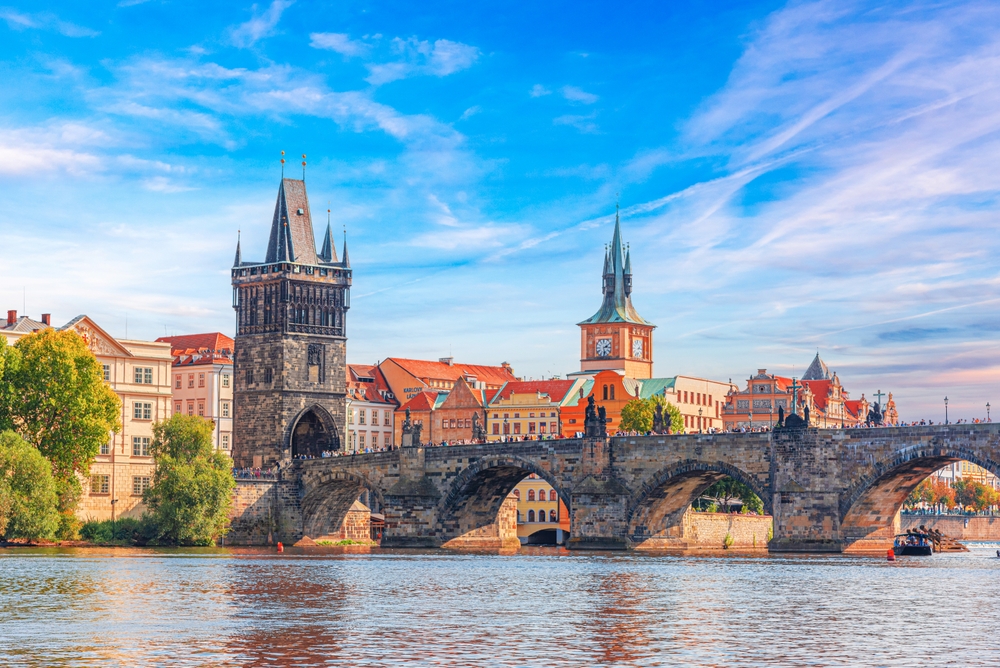 Read on for intel on the best times to see Prague's Charles Bridge without the crowds. Photo: Shutterstock
Read on for intel on the best times to see Prague's Charles Bridge without the crowds. Photo: Shutterstock
The insider advice on this page is from one of Wendy’s Trusted Travel Experts for the Czech Republic: Gwen Kozlowski of Exeter International.
Gwen has been masterminding custom trips for independent travelers to Austria, the Czech Republic, Hungary, Poland, and other parts of Eastern Europe for more than a decade. She’s based in the U.S. but heads to the region at least twice a year to suss out new hotels and restaurants, test driving and train routes, and add to her ever-growing list of local experts—from museum curators to pastry chefs to artisanal vodka makers—who provide access and insights that you could never get otherwise. Unflinchingly honest and obsessively detailed-oriented, she prides herself on knowing exactly where to find the best food—and drink—in every town from Innsbruck to Budapest to Krakow, and she has such strong relationships with local hoteliers that her guests frequently receive VIP treatment at the most atmospheric four- and five-star hotels.
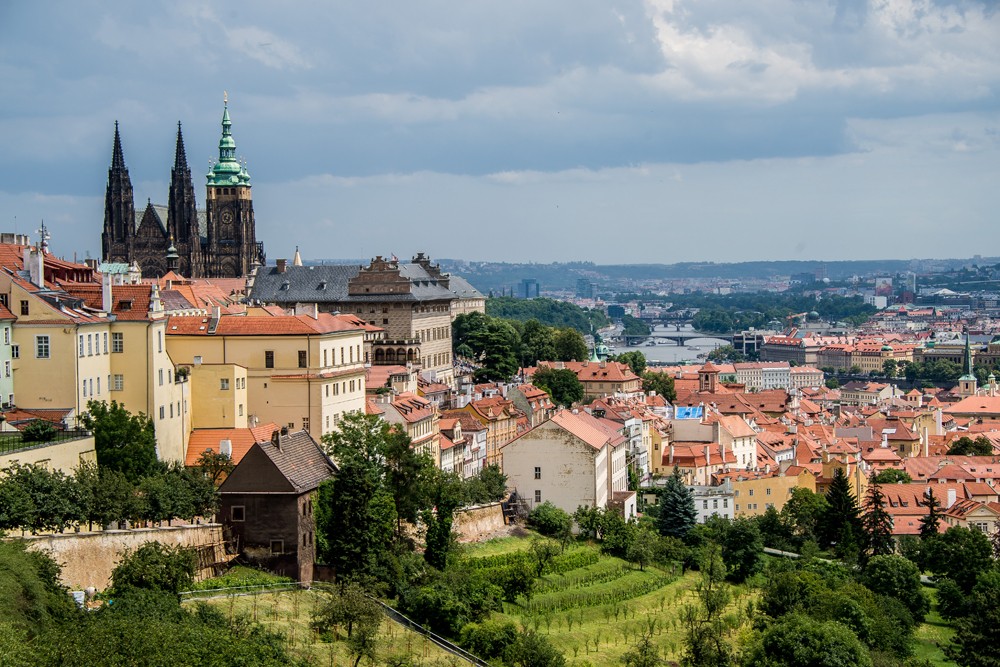
St. Vitus Cathedral, part of the Prague Castle, sits above the city. Photo: Joseph Pisani
Where to Stay and Eat
Best place to blow your budget
For a five-star experience with the best view in town, choose the Four Seasons. All of the rooms reflect the building they’re in, be it Baroque, Renaissance, Classical, or even Art Deco. A true splurge is one of the few rooms that looks out over the river and castle—a view that is quintessential Prague.
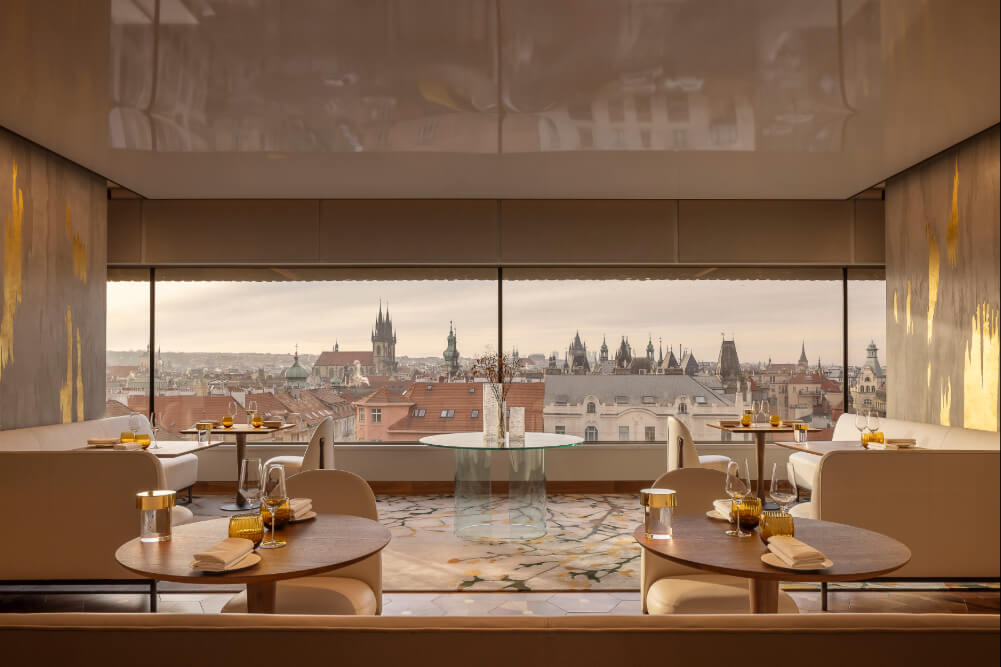
Enjoy this vista over a meal at Zlata Praha. Photo: Fairmont Golden Prague
The Fairmont Golden Prague, opened in summer 2025, is a must-visit, even if you’re not spending the night. Set in a protected, brutalist building, the property is a self-contained urban resort complete with indoor/outdoor pool, private garden, superb spa, and a wide array of restaurants and bars. It also has more castle-view rooms than any other hotel in the city. And if that’s not enough, the rooftop restaurant, Zlata Praha, offers the best views in all of Prague (see “Hot Spots,” below).
Best-value splurge hotels
In Prague: Located in the serene Mala Strana (“Lesser Town”) area that surrounds Prague Castle, the Augustine offers an escape from Old Town crowds. Located in a working monastery (you might see monks in the hallways!), you’ll have an oasis in the heart of the city and will be just steps from all the highlights.
Outside Prague: Chateau Herálec is a secret little spa resort that lives up to even high American expectations. In the countryside an hour southeast of Prague, the reconstructed chateau is home to pretty gardens, 19 rooms and suites, and a L’Occitane spa. There’s much to do within an hour’s drive: Nordic walking, cycling, fishing, and swimming in a quarry. If you dream of staying in a castle, this is the perfect fit!
Best bang-for-your-buck hotel
The boutique Hotel Aria offers oversized rooms and value-priced suites that make it a great choice for families. Like the Augustine, i’s located across the bridge from Old Town in the Mala Strana area. Take in the gorgeous views from the Rooftop Terrace or stroll in the Italian-style terraced Vrtba Garden, which backs up to the hotel.
Restaurants the locals love
In Prague: Můj Šálek Kávy, which means My Cup of Coffee, is the city’s best place for organic coffee and cakes. It is two subway stops from Old Town in a gentrified neighborhood, Karlin, that’s worth seeing for its lovely Art Nouveau and neoclassical architecture. With the arrival of Chef Hlavacek, the Terasa u Zlaté studně restaurant, located in the Golden Well hotel, went from a gorgeous Instagram-worthy terrace restaurant to a real foodie destination. And from morning coffee through late-night cocktails, make sure not to miss Alma, a hip wine bar/café/restaurant located within a movie theater dating from the 1920s.
In Brno: Café Era has a menu that changes daily, always with an emphasis on high-quality local cuisine. But even if the food weren’t as good as it is, the space itself is worth the price of the meal: The cafe is housed in a striking example of functionalist architecture, built during the period when modernist architects—including Mies van der Rohe—were on a building boom in Brno (see also: “Don’t Miss”).
Meals worth the splurge
V Zatisi in Prague. Hidden in the Old Town, this restaurant feels informal and modern, and serves the best pumpkin soup. You can get the inventive tasting menu or order à la carte.
La Degustation Bohême Bourgeoise in Prague. It’s an event to eat at this small Michelin-starred restaurant in the Old Town, where the six- and eleven-course tasting menus imaginatively update traditional Czech fare: Think garlicky pastry-crusted beef tartare and a meringue-like tomato dish filled with honey and balsamic vinegar. Courses are paired with complementary wines, beers, and fruit juices.
Field, Prague’s newest Michelin-starred restaurant. It’s casual and doesn’t have the gigantic tasting menu that you expect at a gourmet haunt, but instead features seasonal products that come together in a modern interpretation of classic Czech dishes.
Hot spots
For the best view in town, head to Zlata Praha, in the new Fairmont Golden Prague.
Housed in a gorgeous space in Old Town, 420 Restaurant offers a casual, accessible menu by the same chef as Field.
Dishes to try
There’s nothing more Czech than a hearty meal of duck, dumplings, and cabbage, and the best place to eat it is Prague’s Blue Duck (U Modré Kachničky), a cozy little restaurant in Mala Strana.
On the sweet side, the country’s ubiquitous fruit dumplings combine all good things: sweet, dense dough wrapped around fresh fruit and sprinkled with powdered sugar, grated gingerbread, or shaved chocolate.
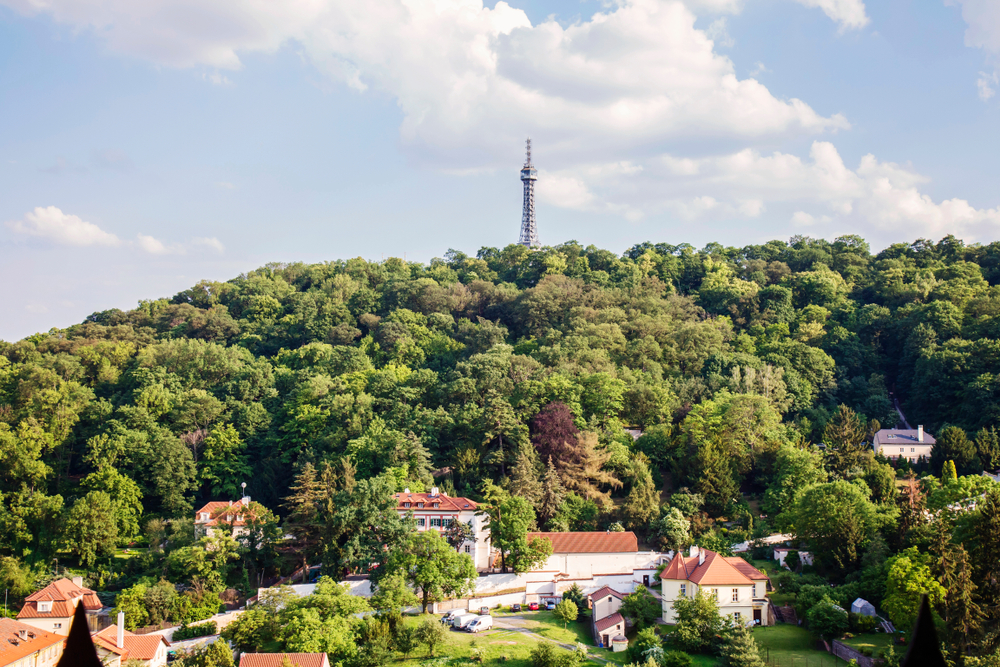
Picnic atop Petrin Hill, near Prague’s “Little Eiffel Tower.” Photo: Shutterstock
Prime picnic spots
Take a funicular from Mala Strana to the top of the steep Petrin Hill, where Prague families picnic and take in city views. After lunch, go to the top of Petrin Tower (Prague’s “Little Eiffel Tower”), or let the kids explore a mirror maze. For a different—but still sweeping—view, head north across the river from Old Town to Letna Park. The hilltop park, popular with skateboarders, rollerbladers, and cyclists, isn’t great for walking. But on the plus side, it has a beer garden with views.
What to See and Do
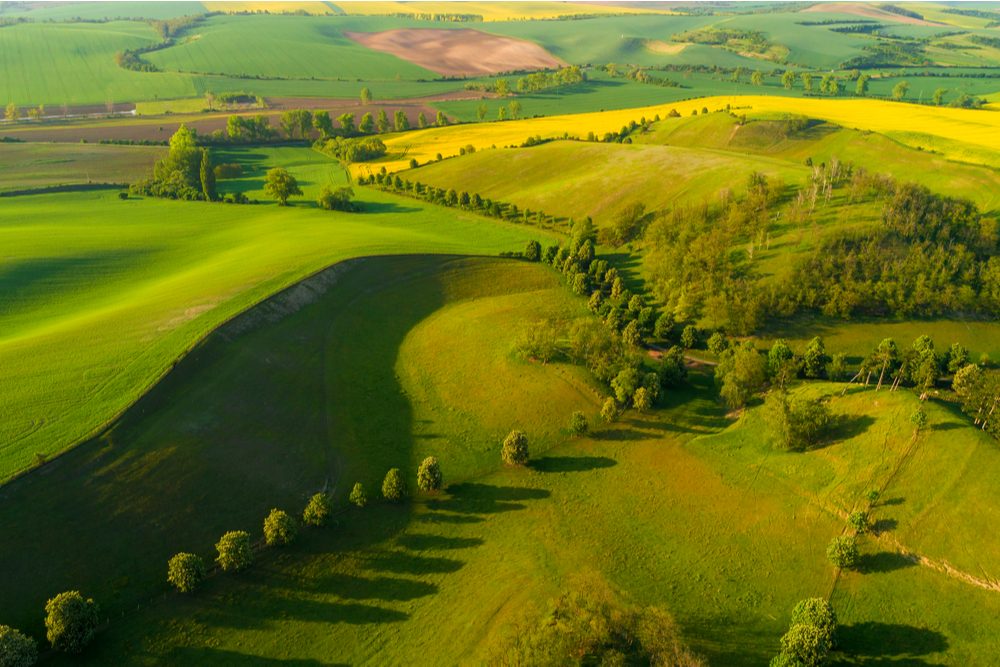
Don’t miss the Moravian wine region. Photo: Shutterstock
Don’t miss
The Moravian wine region, two to three hours outside Prague. The Europeans have found it, but Americans aren’t there yet. And within Moravia’s manicured green hills there’s something for everyone: The countryside is bisected by miles of bike routes; its vineyards produce good white and Riesling wines; and the town of Mikulov has streets lined in baroque and renaissance homes along with an interesting historical Jewish quarter. If nothing else, the Lednice-Valtice castle complex is the perfect place to stop off on the drive from Vienna to Prague—it’s home to two magnificent chateaus linked by a four-mile avenue of lime trees.
Brno. About two-and-a-half hours from Prague, Brno is the country’s second-largest city and one of the most interesting. It has an especially rich architectural history: Mies van der Rohe built the famous glass house Villa Tugendhat here in the 1930s, and the city became a center for modernist architecture. What’s more, it’s easily accessible by train from Prague, unlike Český Krumlov or Mikulov, so you don’t need your own wheels to visit.
Český Krumlov. You can’t help but love this UNESCO-protected town 100 miles south of Prague—unless you see it with the busloads of tourists that unload here every day. If you have time, stay overnight to explore before the buses arrive. If not, go during the workweek (just not on Monday, when the castle is closed).
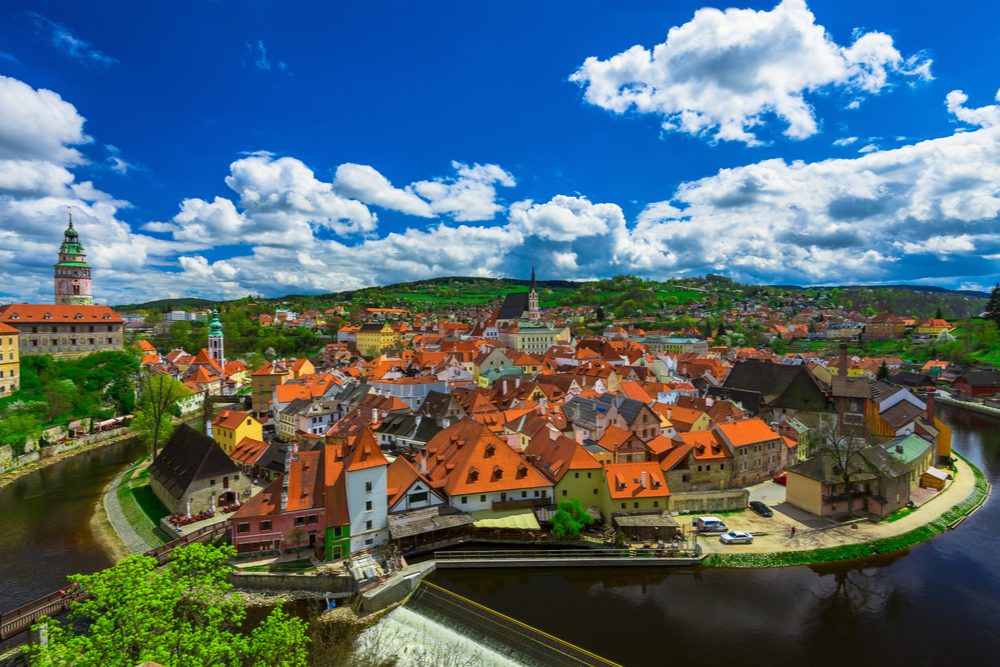
Time your visit to Český Krumlov carefully. Photo: Shutterstock
Terezín (Theresienstadt), the remains of the concentration camp that stood an hour northwest of Prague. Unlike Auschwitz and Dachau, this camp wasn’t a facility outside of town; rather, it was built into an existing village and branded as a “spa town” in a Nazi attempt to influence international opinion. There’s not much to see today, but Gwen can arrange a tour led by two camp survivors whose personal stories bring to life the site’s harrowing past.
Don’t bother
Prague’s Charles Bridge. Well, do bother, but only before 9 a.m. or after 9 p.m. During the day, it’s jammed with camera-toting tourists and aggressive souvenir hawkers.
If you’re after old-world grandeur and luxurious state rooms, don’t fight the crowds for the somewhat underwhelming interiors at Prague Castle—there are far better examples in Austria, including Schönbrunn Palace and the private Palais Liechtenstein.
Cheap thrill
Beer. Pubs are everywhere in Prague, and Czech beers are good and cheap. You can drink the most famous brand, Pilsner Urquell, virtually anywhere.
Downtime
Rent a pedal boat and take it up and down the Vltava River. Sure, it’s touristy, given that you can pedal under the Charles Bridge and past the red-roofed buildings of Old Town and Mala Strana, but this is also a favorite local pastime.
Best Times to Go
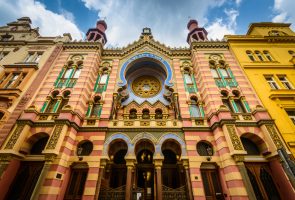
April through early May. You’ll beat the cavalcade of tour buses that bring summer crowds, and you’ll see an explosion of spring flowers in Prague’s lovely gardens. Plus, it’s temperate: in the 50s and 60s.
Late September through October. Once the tour groups have gone home again, the weather gets cooler (in the same 50s-to-60s range) and everything becomes easier to see.
December. Prague makes a great add-on to another European city visit when the whole place is alive with holiday markets, décor, street food, and more. It’s a festive and vibrant time to enjoy the city without the crowds.
Worst Time to Go
November through March. Most of the castles in the countryside close for this period. November can be gloomy; March brings rain and slush.
Biggest Rookie Mistakes
Not realizing the Czech Republic isn’t on the euro. That’s right; it’s on the Czech koruna. Take some money out of an ATM when you have a chance; you can exchange euros in shops, but the rate is subpar.
Arriving without arranging transportation. Prague has an unfortunate (but accurate) reputation for unscrupulous taxi drivers at the airport and the main train station (Hlavní Nádraží). There’s no need to splurge on a private driver—just book a transfer in advance with AAA Taxi or Tick Tack Taxi.
Taking a bus tour of Prague. No bus can get through the twisting and winding streets of the gorgeous Old Town and Mala Strana areas, so you’ll only see the less interesting surrounding neighborhoods. If you’re on a budget, join a group walking tour instead.
Calling it Czechoslovakia—that country hasn’t existed in decades! Even though Czechia is the recognized official name, pretty much every local refers to their country as the Czech Republic.
Must-Have Apps
Mapy.cz: This handy app will use your phone’s GPS to help you find your way through Prague’s winding streets.
Czech Dictionary: Don’t let the Slavic-based language intimidate you. This app does a great job of English-to-Czech translation.
Tips for Trips: This terrific (and Czech Republic-specific) app provides lots of ideas for activities and places to visit on your own.
Tipping Tip
Make sure to tip in cash; any currency works. Give about 10 percent at restaurants.
Don’t Forget to Pack
Bubble wine bags for transporting your Moravian Riesling haul. Pack lightly; you’ll want to shop for things for your home.
Instagram Moments

The Charles Bridge early in the morning or late at night, when the light is best and there are fewer tourists to block your shot. (And by early, think sunrise. You can always go back to bed after!) Take your photo from the Old Town side so you can get the Prague Castle in the background.
For a panorama of Prague’s candy-colored buildings from on high, go to the top of the Petrin Tower.
The Souvenirs
A marionette is the quintessential souvenir, and Prague shops stock a range, from tiny puppets to life-size dolls. Obchod U Saska in Old Town has beautiful marionettes and handmade wooden toys.
Czech glass is a more grown-up memento; look for something special in Moser Glass’s gorgeous Old Town store.
Those with modernist tastes should check out Kubista for Cubist ceramics, posters, blankets, and jewelry.

